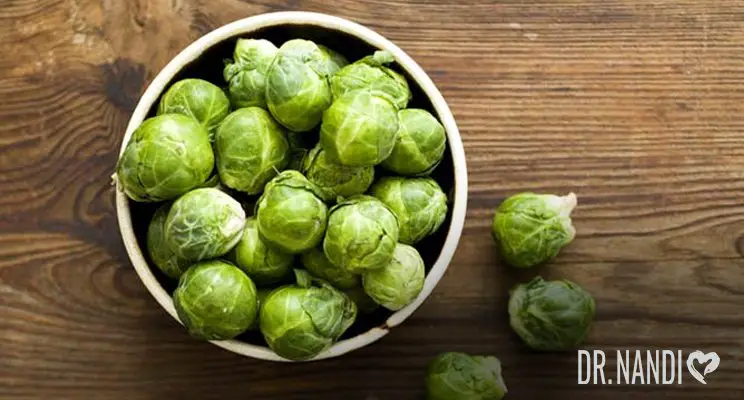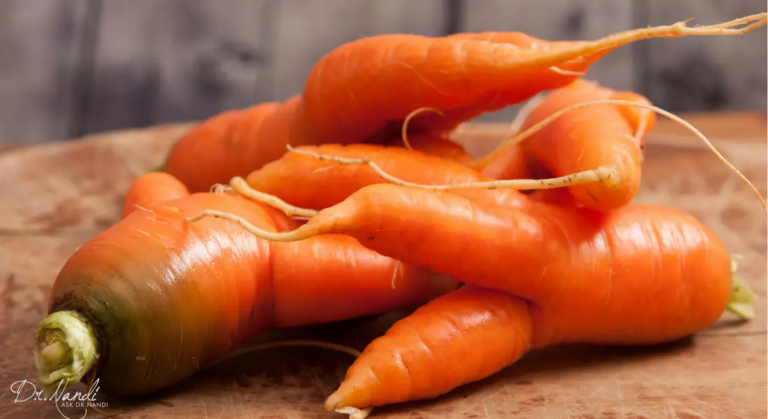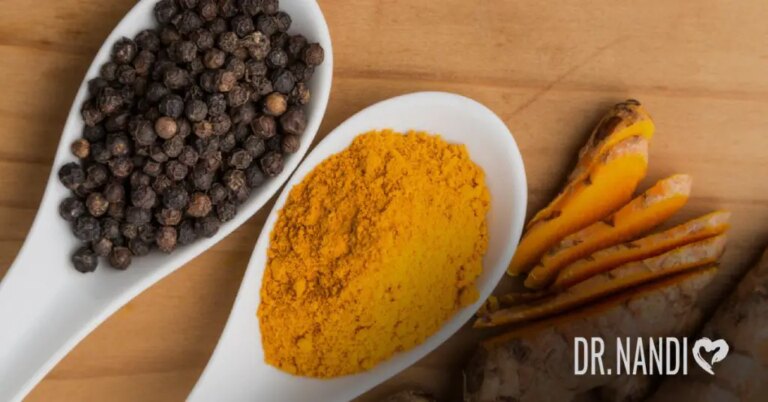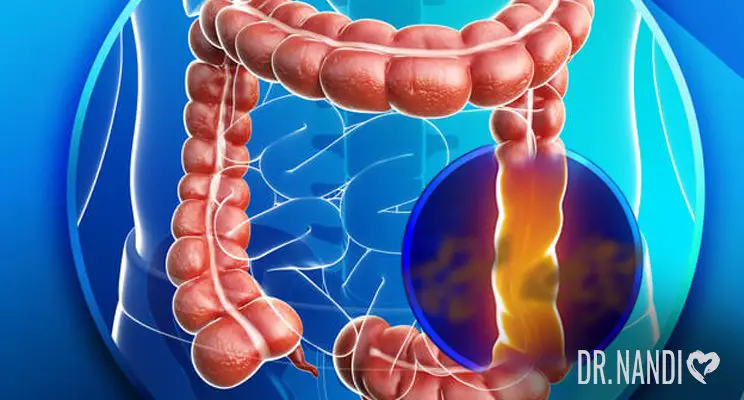Brussels sprouts are native to the Mediterranean region along with other cabbage species. Rome was likely the first to cultivate Brussels sprouts. They first appeared in northern Europe during the 5th century and were cultivated in the 13th century near Brussels. The first written reference dates back to the late 1500s.
Health Benefits of Eating Brussel Sprouts
Below are some of the amazing health benefits of brussels sprouts.
Brussels Sprouts May Aid in Diabetes Management
Studies have found that Brussels sprouts contain alpha-lipoic acid. Alpha-lipoic acid is an antioxidant found to lower glucose levels, increase insulin sensitivity, and prevent oxidative stress-induced changes in patients with diabetes. This antioxidant is present in many green vegetables. Some promising results have been found, suggesting alpha-lipoic acid can decrease peripheral and autonomic neuropathy in people with diabetes. More research is needed because it is unclear whether consuming the substance as part of the diet would provide the same benefits regarding neuropathy.
Brussels Sprouts May Help Fight Cancer
It is a well-known thought that eating cruciferous vegetables like Brussels sprouts is associated with lower cancer risk. Researchers in recent studies have pinpointed that the sulfur-containing compounds in Brussels sprouts provide both their bitter taste and their properties that combat cancer. Scientists are excited with recent results regarding esophageal, prostate, and pancreatic cancer and melanoma because they contain high levels of chlorophyll, the green pigment in plants. Brussels sprouts help block the cancerous effects of heterocyclic amines generated when charring meats.
Brussels Sprouts are Rich in Vitamin K
Vitamin K is a fat-soluble nutrient essential for blood clotting, bone health, and heart health. It is present in leafy green vegetables, including Brussels sprouts. Just one cup of Brussels sprouts provides more than the recommended daily intake of vitamin K.
Brussels Sprouts are a Good Source of ALA Omega-3 Fatty Acids
Omega-3 fatty acids are a type of polyunsaturated fat beneficial for heart health. They are found in fatty fish like salmon, tuna, and some plant foods like Brussels sprouts. While the omega-3s in plants are not the same as those in fish, they still offer health benefits. One cup of Brussels sprouts provides about 0.3 grams of omega-3 fatty acids.
Brussels Sprouts May Help Reduce Inflammation
Free radicals are harmful molecules that can promote inflammation and contribute to cancer, diabetes, and heart disease. Brussels sprouts contain high levels of antioxidants – chemicals that help to remove free radicals from the body. In this way, eating Brussels sprouts may help to reduce inflammation and lessen your risk of developing certain chronic illnesses.
Cruciferous vegetables, such as Brussels sprouts, may aid in the reduction of inflammation and the development of pro-inflammatory illnesses.
Brussels Sprouts are High in Vitamin C
Vitamin C is an important nutrient for your body. It helps to grow and repair tissues, produce proteins like collagen and may enhance immunity. Vitamin C can also increase your absorption of non-heme iron from plant foods. The body does not as easily absorb non-heme iron as the iron found in animal sources.
Vitamin C is found in numerous fruits and vegetables, with Brussels sprouts being one of the best vegetable sources.
Brussels Sprouts May Support Eye Health
The carotenoids in Brussels sprouts (and carrots and sweet potatoes) can be converted to vitamin A in your body, which is good for eye health. Eating foods with carotenoids has improved vision and prevents eye damage from blue light.
Brussels Sprouts May Strengthen Bones
This essential nutrient has been linked with strong bones and a lowered chance of injury. A 2017 study showed that people who ate a diet rich in vitamin K had a lower risk of fractures. So not only are these delicious Brussels Sprouts good for your taste buds, they’re good for your strength too!
Eating Brussels Sprouts May Lower Risk of Heart Disease
This delicious fall side dish is not only an excellent way to consume more bacon but also provides many benefits for your health. Brussels sprouts are especially rich in vitamin C, shown through studies to lower the risk of chronic cardiovascular disease when included in a diet high in fruits and vegetables.
Brussels Sprouts are Full of Antioxidants
A recent study found that 2 cups of Brussels sprouts eaten daily can help to slow the damage to cells from oxidative stress by nearly 30%. The antioxidants reduce oxidative stress in your cells, lowering the risk of chronic disease. They are high in an antioxidant called kaempferol, studied extensively. Kaempferol is thought to reduce cancer cell growth, improve heart health and ease inflammation. Studies have shown that adding more Brussels sprouts to your diet is a great way to help supply the body’s antioxidants to promote good health.
Brussels Sprouts are High In Fiber
Eating a half cup of cooked Brussels sprouts gives you nearly 10 % of your daily fiber needs. They contain 2 grams of healthy fiber. Dietary fiber relieves constipation by increasing stool frequency and helping to soften the consistency of the stool to ease the passage. Many studies have proven that fiber promotes digestive health by helping feed the gut’s beneficial bacteria. Increased fiber intake has reduced the risk of heart disease and improved blood sugar control. Women should consume 25 grams of fiber daily, and men should get 38 grams daily.
Brussels Sprouts Benefits The Immune System
Raw brussels sprouts contain a large amount of vitamin C. Vitamin C is a protective antioxidant in the body, reducing inflammation and cell damage. Vitamin C’s antioxidants protect your immunity against bacteria, viruses, toxins, and other harmful invaders that can cause disease and illness. Researchers have found that Brussels sprouts help maintain the health of your digestive tract, skin, eyes, teeth, and gums. Foods such as Brussels sprouts high in vitamin C protect cells from free radical damage, which reduces the risk of heart disease, cancer, and autoimmune responses.
Brussels Sprouts Aare Very Easy to Add to Your Diet
A fantastic way to liven up any meal is Brussels sprouts! They can easily be worked into various side dishes and main courses. Some people prefer roasting, boiling, sauteing, or baking them. If you’re looking for a straightforward side dish, begin by chopping off the ends of the Brussels sprouts. Then mix them with olive oil, salt, and pepper before throwing them on a baking sheet. Roast until they’re nice and crispy!
References:
- FoodData Central (usda.gov)
- Brussels Sprouts | The Nutrition Source | Harvard T.H. Chan School of Public Health
- Influence of Cooking Methods on Bioactive Compound Content and Antioxidant Activity of Brussels Sprouts – PMC (nih.gov)
- Systematic review with meta-analysis: effect of fibre supplementation on chronic idiopathic constipation in adults – PubMed (nih.gov)
- Carbohydrate quality and human health: a series of systematic reviews and meta-analyses – The Lancet
- Consumption of citrus and cruciferous vegetables with incident type 2 diabetes mellitus based on a meta-analysis of prospective study – PubMed (nih.gov)
- Fiber: The Carb That Helps You Manage Diabetes | Diabetes | CDC
- Omega-3 Fatty Acids – Consumer (nih.gov)
- Chronic inflammation in the etiology of disease across the life span | Nature Medicine
- Vitamin C – Health Professional Fact Sheet (nih.gov)
- Lutein May Decrease Risk of Macular Degeneration – AMDF
- Consumption of citrus and cruciferous vegetables with incident type 2 diabetes mellitus based on a meta-analysis of prospective study – PubMed (nih.gov)




















